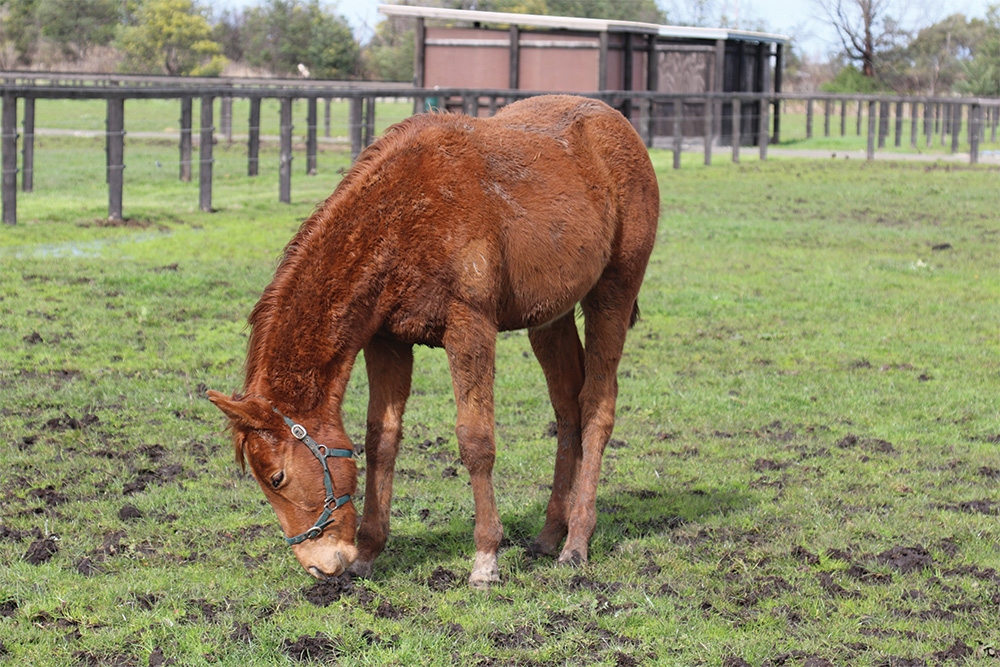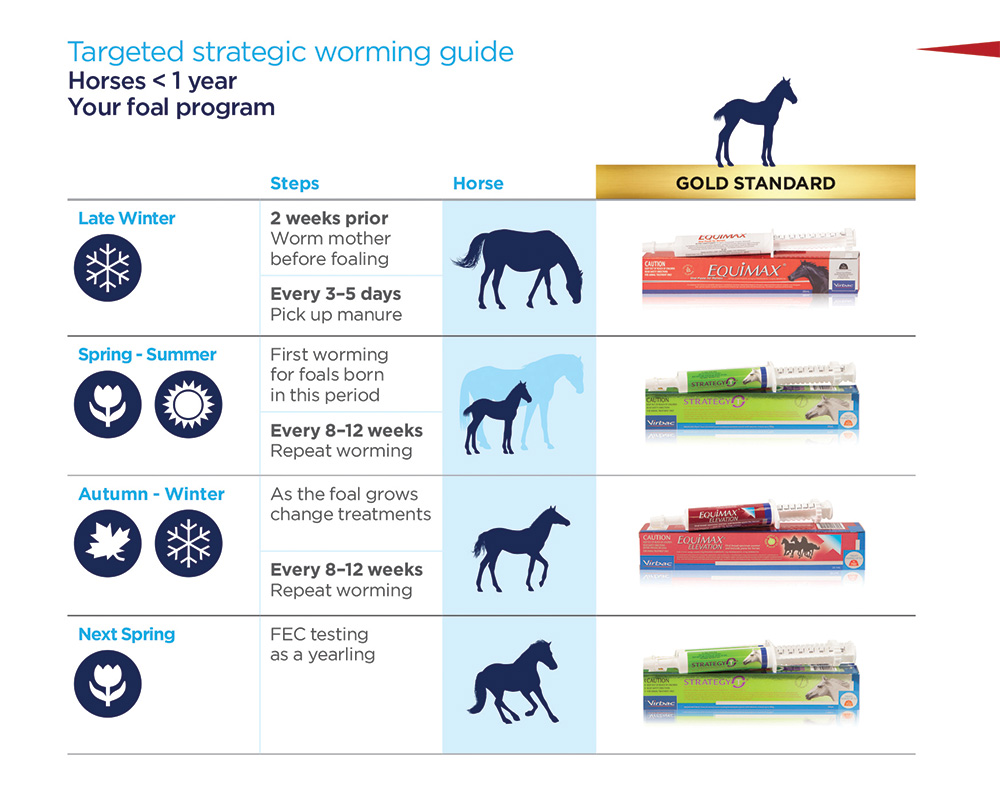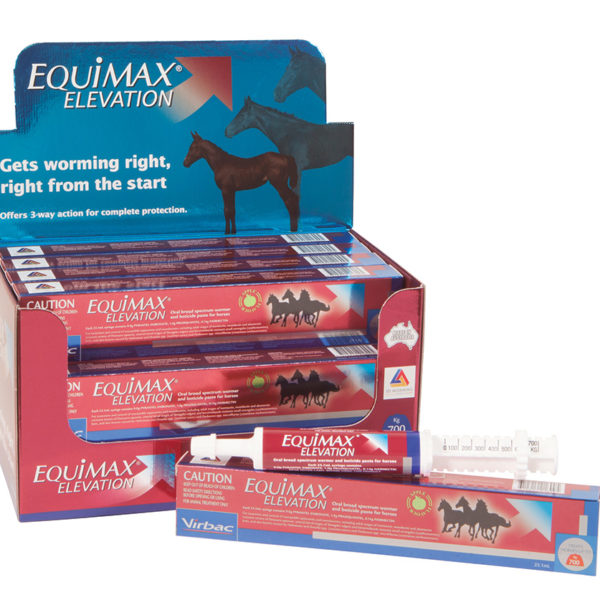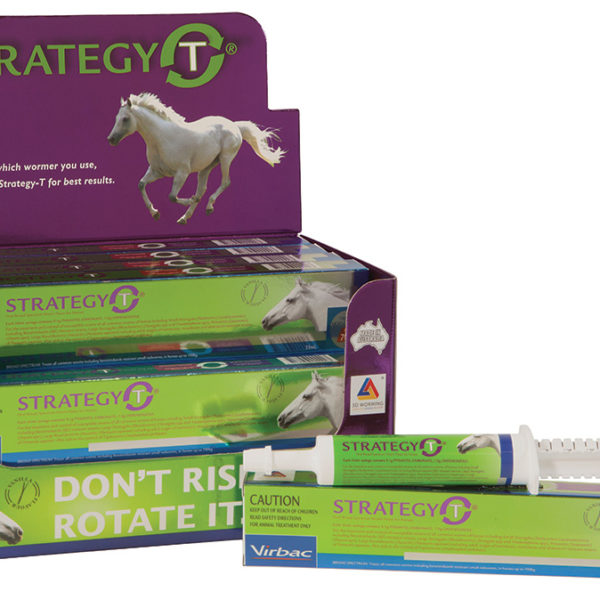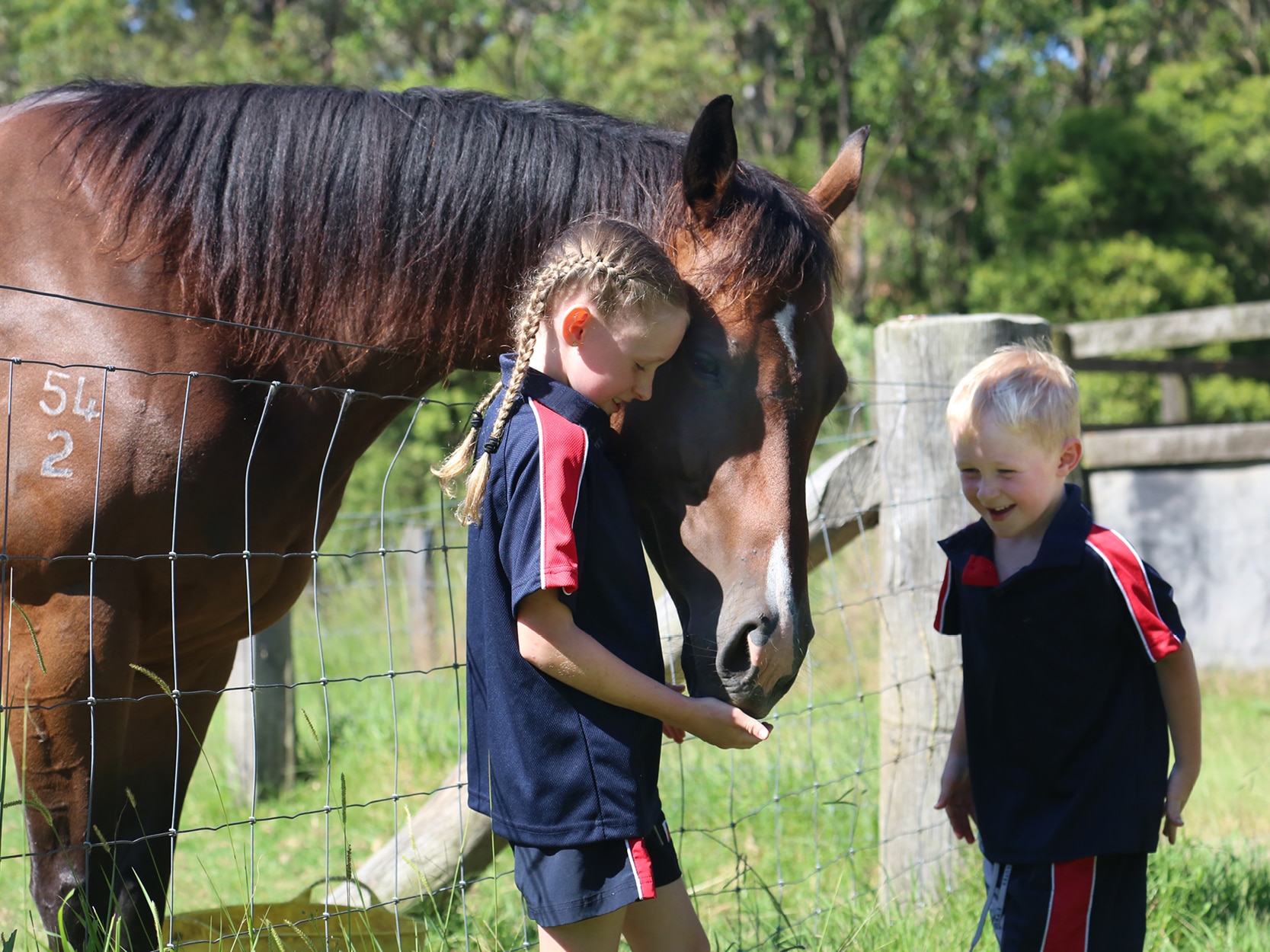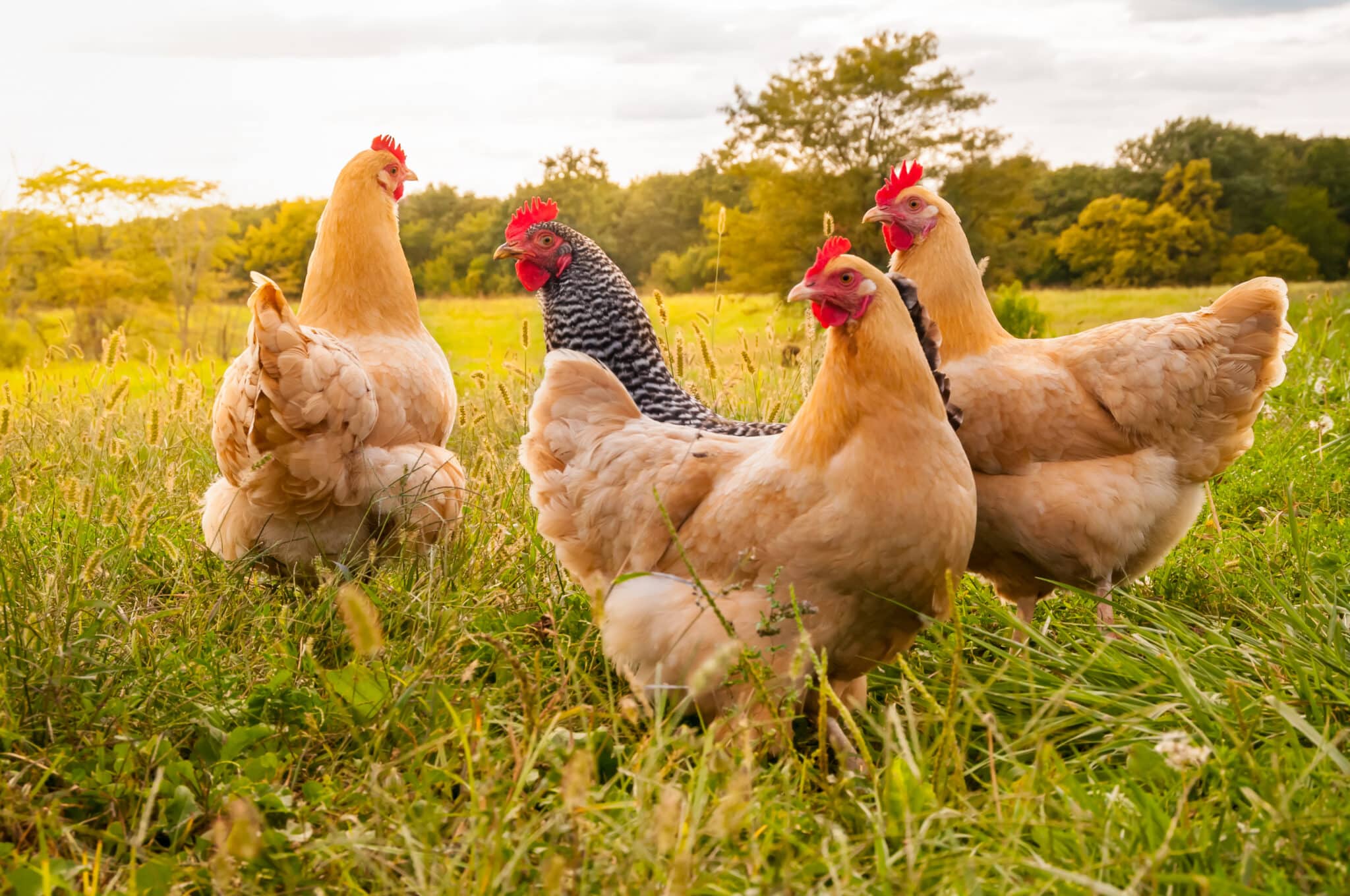Controlling worms in foals and young horses is important.
The immature immune systems of foals and young horses make them far more susceptible to worms than older animals. Some worm species are very common in young horses but rarely seen in older horses as their immune system develops with age. Young animals are also more susceptible to damage caused by worms due to their smaller size. Immature lungs and digestive systems are easily damaged by migrating worms, and a worm burden that may not cause a problem in an adult horse can easily block a foal’s gut.
Ascarids. The worm most dangerous to young horses.
The large roundworm or ascarid primarily affects horses less than two years of age. Ascarids are the most significant parasite in young horses because they are such large worms and can quickly develop into life threatening numbers. Ascarids have the potential to cause liver damage, which is repairable, and lung damage, which is permanent.
Understanding chemical resistance and ascarids.
Proper product selection is paramount in areas where resistance is already present and equally important in preventing future development of resistance. Macrocyclic lactones or mectins on their own are no longer recommended for treatment of young horses. It is essential that all horses less than two years of age include a THP (pyrantel) in their worming program because mectins and BZs used on their own are not reliable enough against ascarids. Combination anthelmintics can slow the development of resistance and are more useful in the face of pre-existing resistant populations (Wilkes et al, 2017). Equimax® Elevation and Strategy-T® are unique combination products highly suitable for the current resistance status of roundworms in Australian foals.
The best way to treat and control worms in young horses.
In summary, to protect young horses from potential resistance issues, it is recommended that a combination product registered to treat mectin resistant ascarids, such as Equimax® Elevation or Strategy-T®, be used. Young horses should be wormed regularly with Strategy-T in spring and summer and Equimax Elevation in autumn and winter from eight-twelve weeks of age until they are two years old. It is also recommended to begin a FEC monitoring program for yearlings to help guide treatment frequency. Refer to our targeted strategic worming guide for your foal program above.
